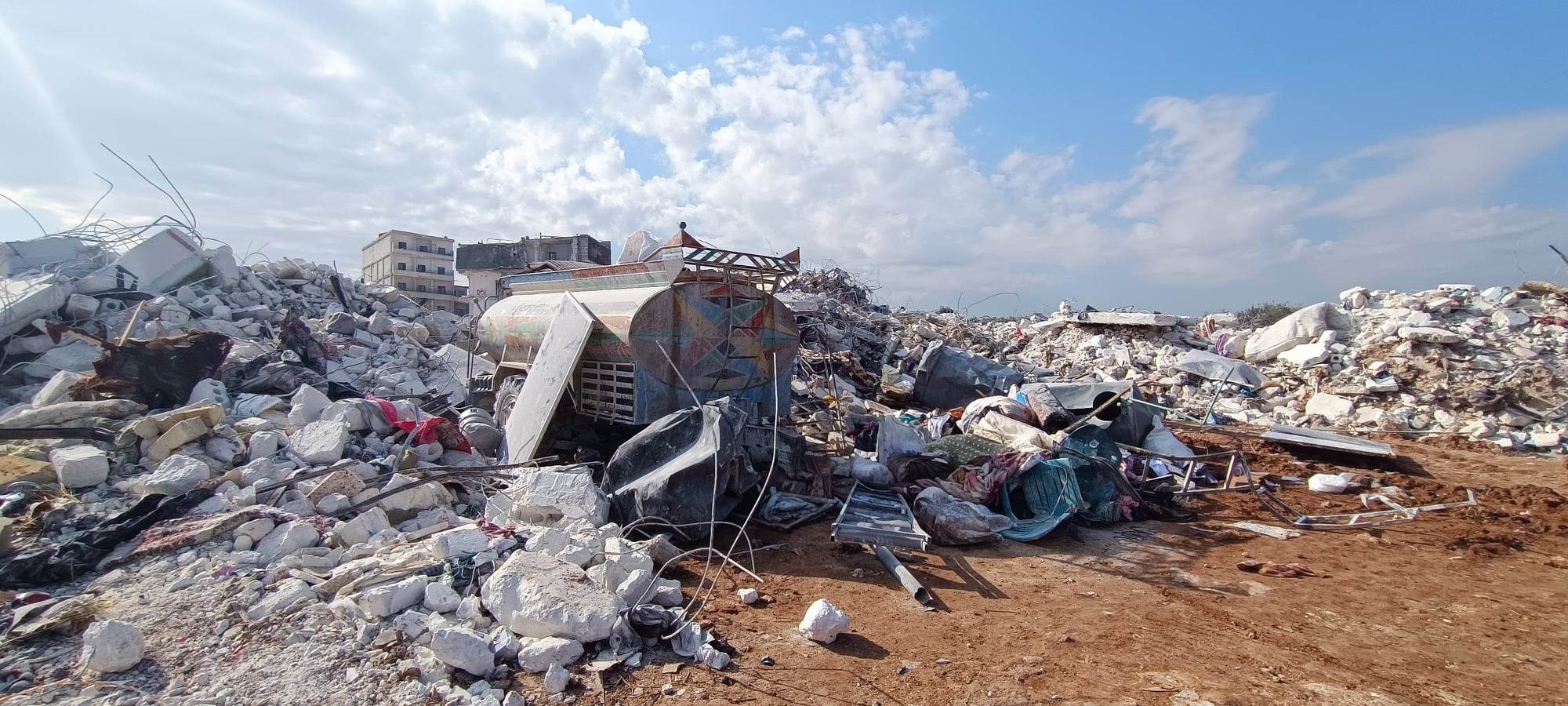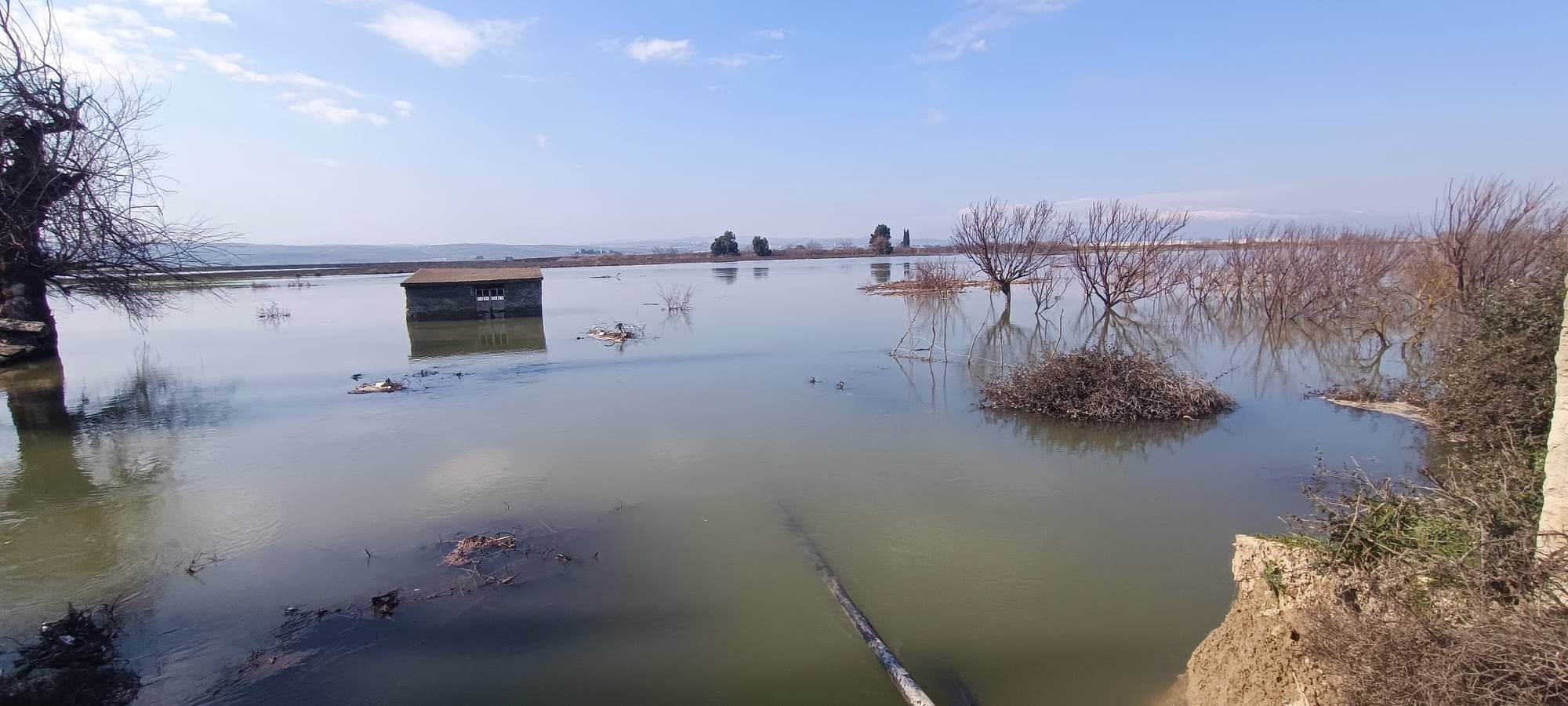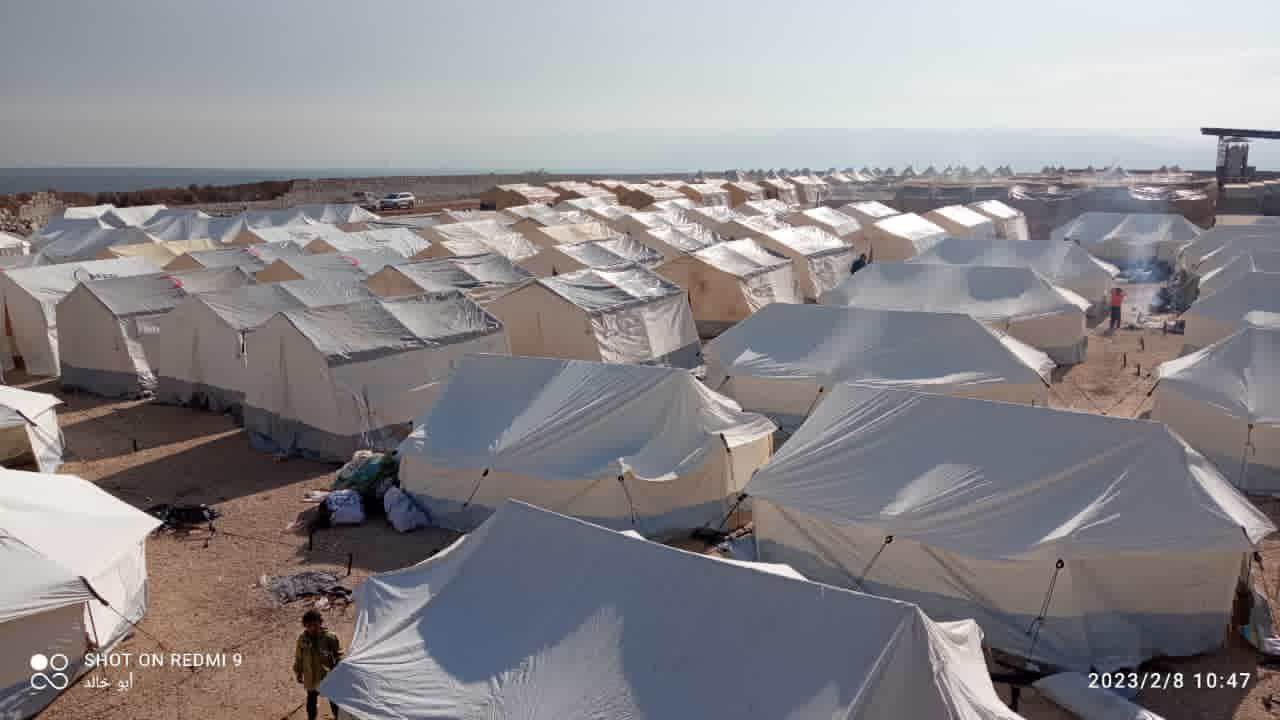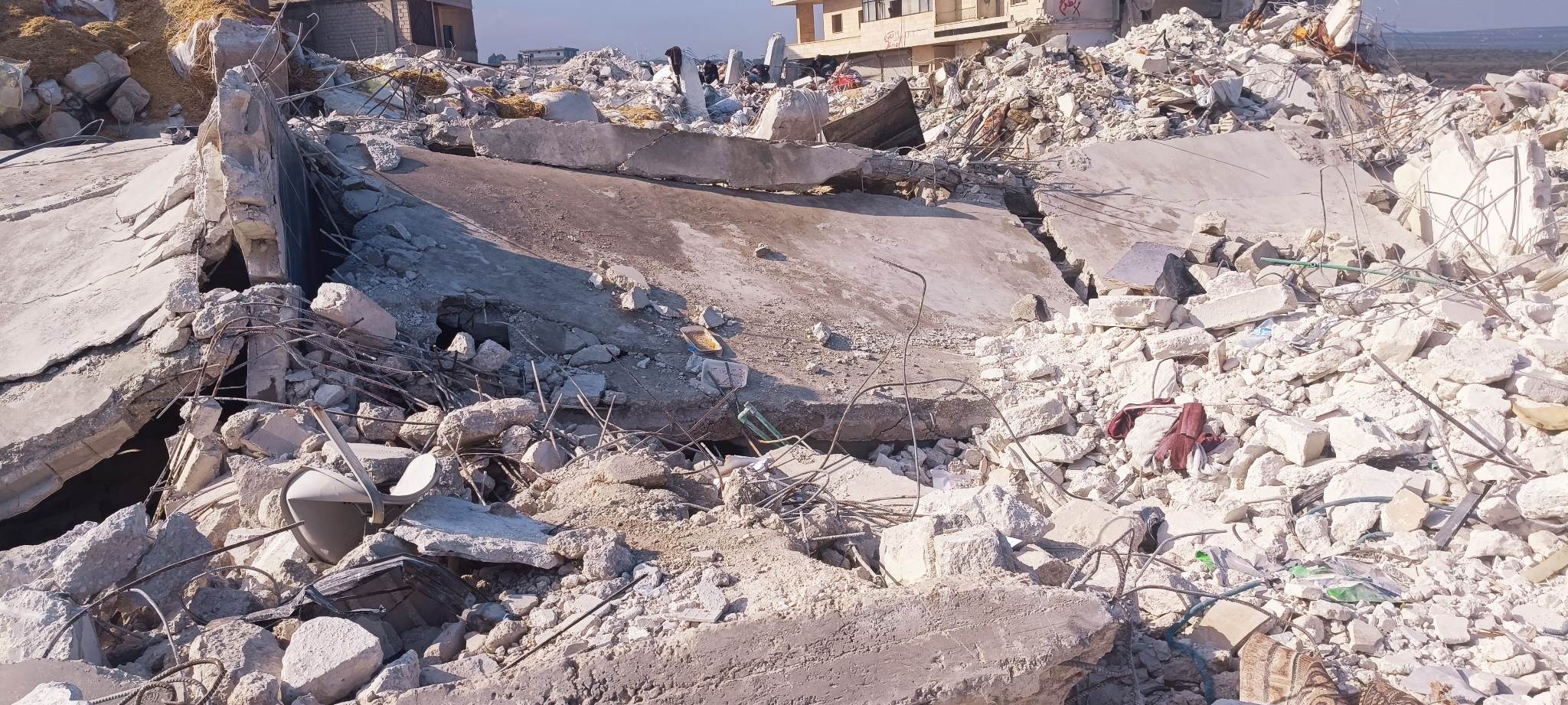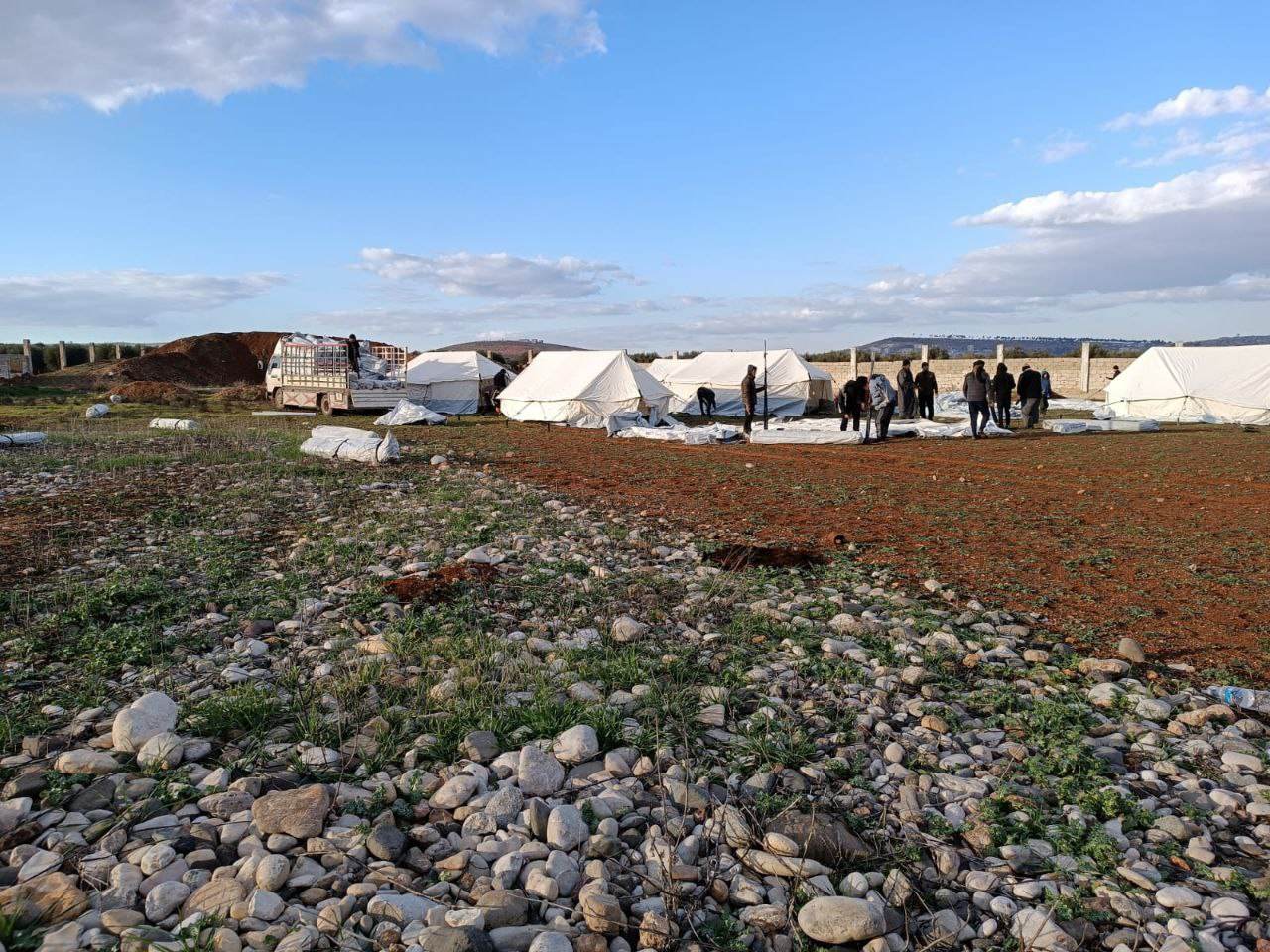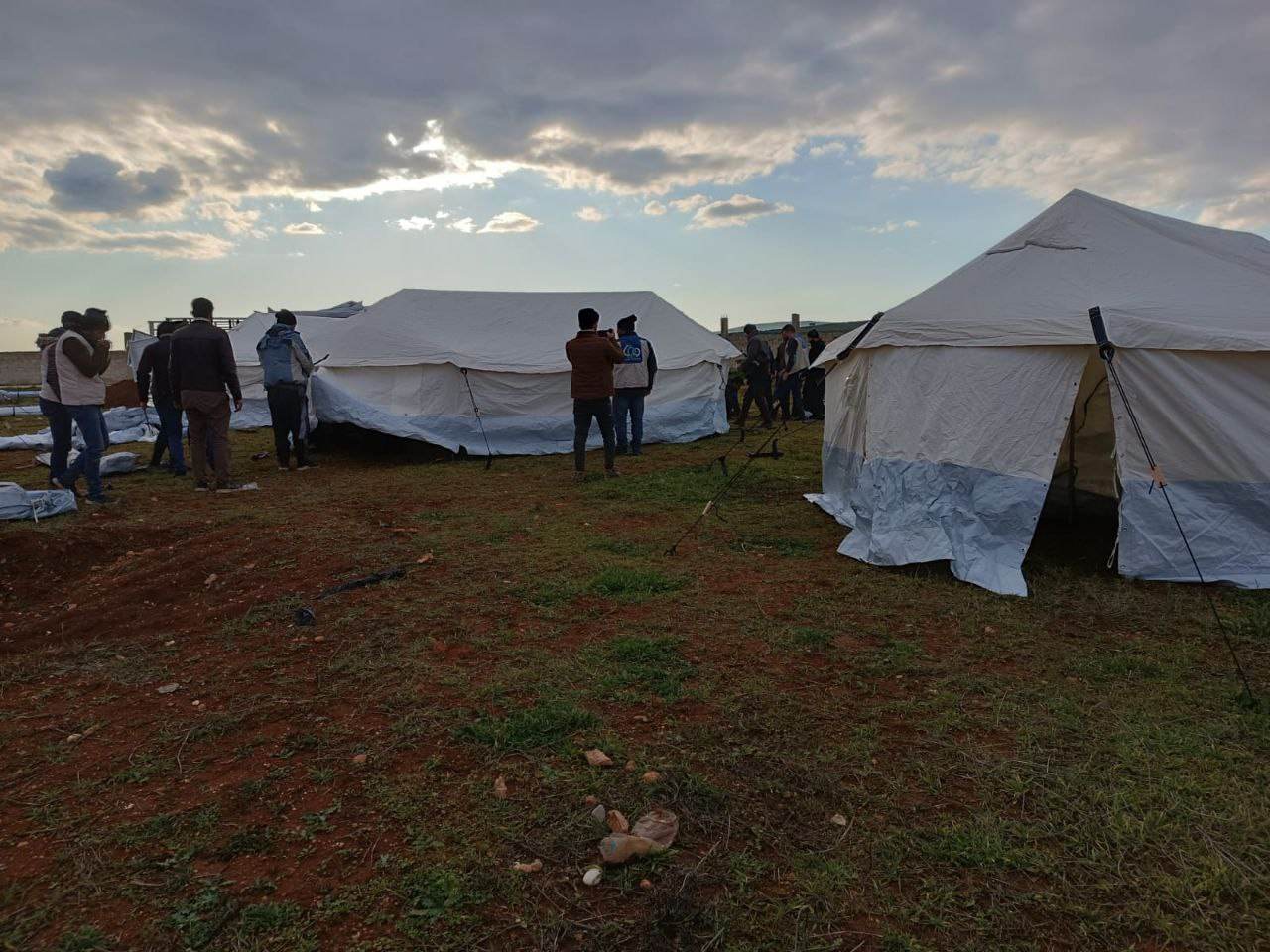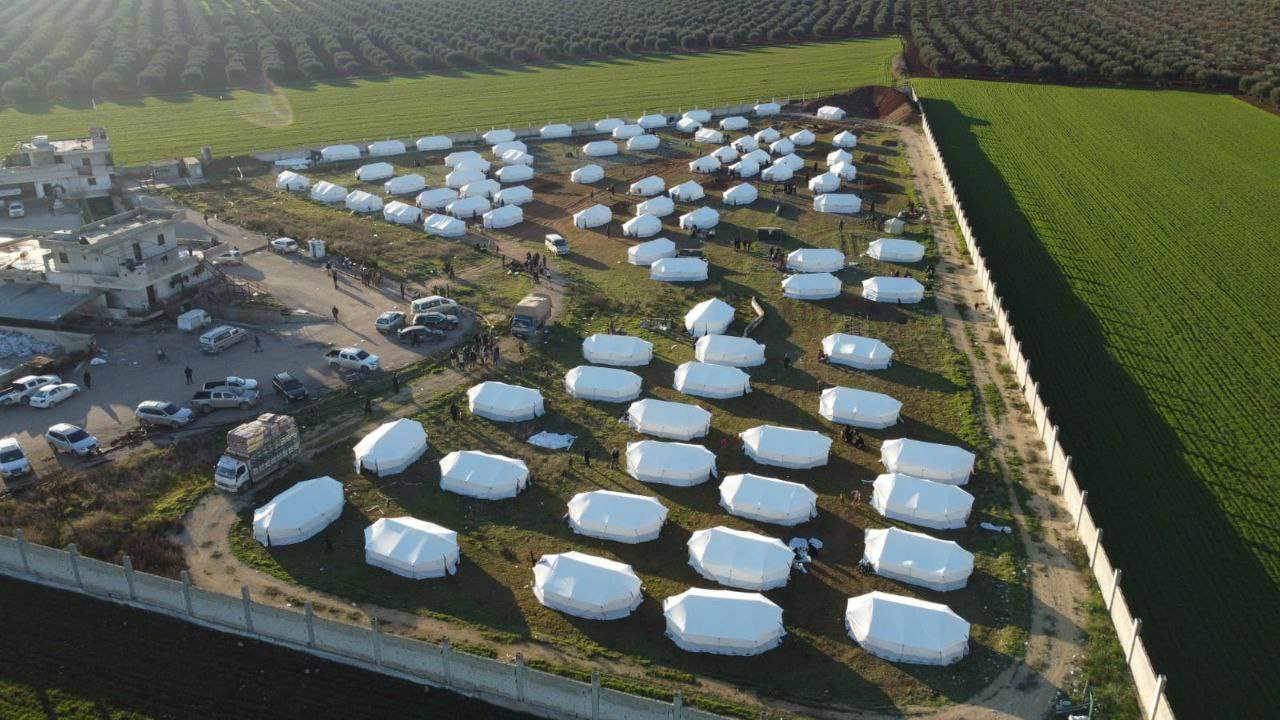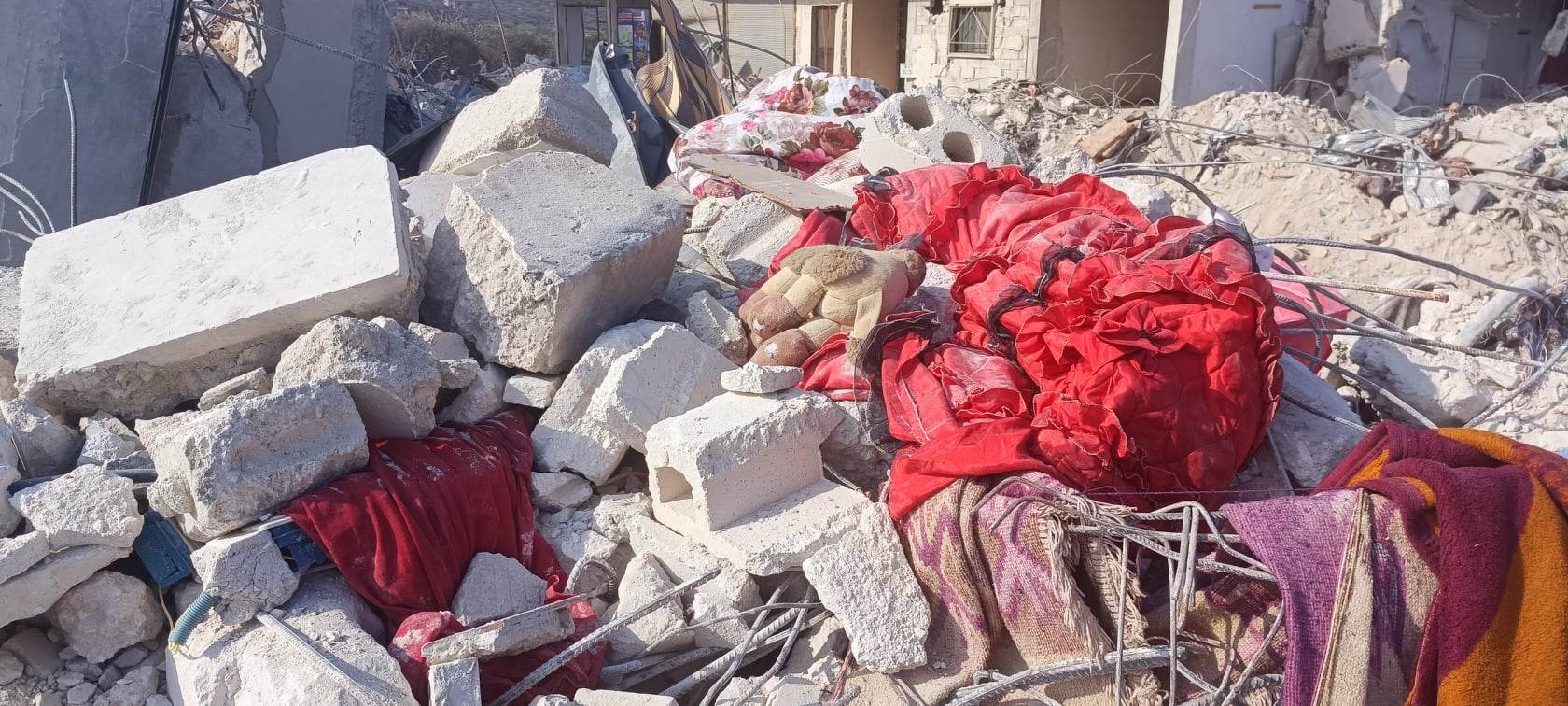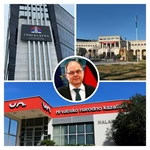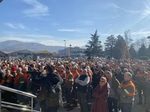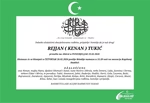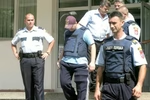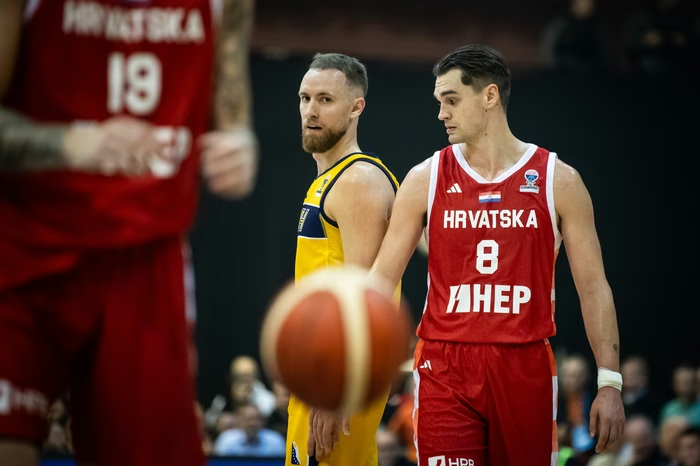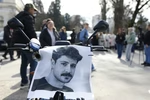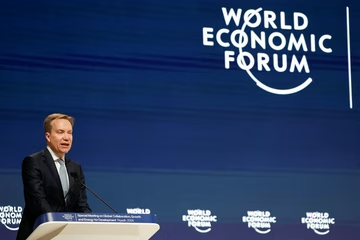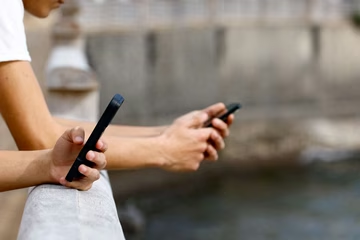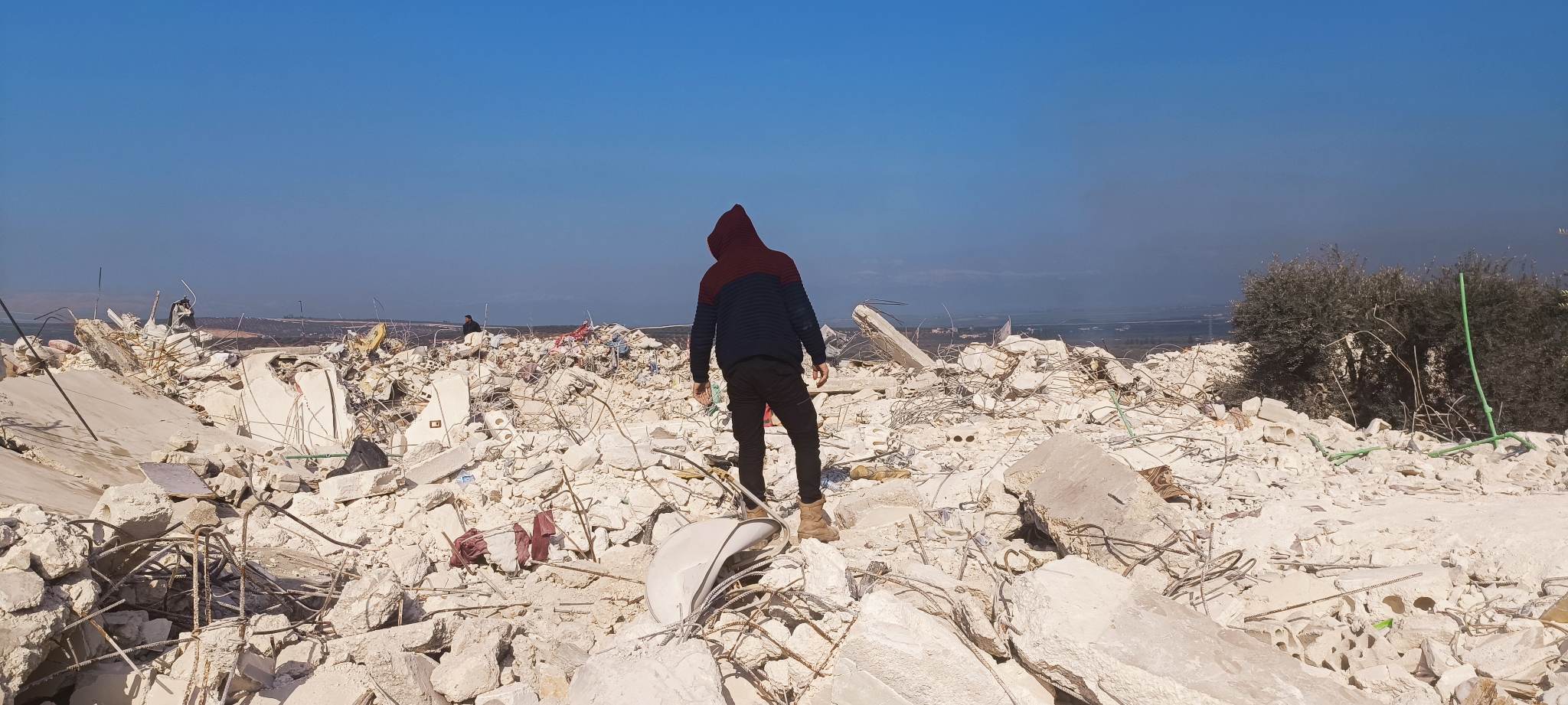
The catastrophic earthquake has claimed countless lives and left hundreds of thousands homeless in sub-zero temperatures both in Turkey and Syria. But due to politics, the aid convoys for the victims do not reach the rebel-held Syrian border area. Here, the people pull survivors out of the rubble with their bare hands.
“As I’m writing these words, those affected by the earthquake are sleeping in the streets, roads and public places, and are exposed to temperatures as low as -4c degrees, and they and their children suffer from hunger and cold,” Muhammad Qattash told N1.
He explained that those affected by this disaster now need shelter, food, heating, medical assistance, blankets, tents and basic humanitarian services.
To get all this, one thing is essential, he stressed.
“Most of all, the opening of the border crossings that were closed due to politics and the introduction of urgent and necessary aid to save the remaining people who were turned into victims of this disaster and who had already been displaced and bombed over the past 10 years, which is a bigger disaster than the earthquake,” he said.
Muhammad explained that most of the time, the aid that enters the country does not reach those who need it.
“I have seen many charitable campaigns requesting aid and donations, and often these campaigns have other unknown goals and never reach those in need or they get a very small portion of it,” he said.
The 28-year-old Syrian asked us not to publish his photo, but he said he would not mind if we mention his name because many people in the country have similar names. He explained that he fears for his parents who live in the territory controlled by the regime in case he is identified. N1 confirmed his identity.
Muhammad spoke to N1 from a settlement where civil war refugees live near the village of Kafaldin, in the rebel-held border area. The Syrian government considers this territory controlled by an enemy force so no help can be expected from the regime.
Syria's borders are closed due to the civil war and the people are mostly left to fend for themselves. Help comes from the White Helmets and local volunteers.
Muhammad is one of them.
video width="640" height="368" mp4="https://n1info.ba/wp-content/uploads/2023/02/14/1676401242-329811094_6474730082559252_6009769754644014630_n.mp4"]
/video]
How helping the people of Syria became a political issue
The devastating earthquake that struck the region last Monday raised the issue of humanitarian aid, a subject Syria has struggled with for years.
According to the Washington Post, sending aid to Syria has been deeply complicated by a war that has been ongoing since 2011, which has divided the country into three parts: government-controlled areas, a part controlled by US-backed Kurdish forces, and a pocket held by the opposition in the northwest, where almost two-thirds of its 4.5 million inhabitants arrived from other parts of the country, and a humanitarian crisis was already underway before the earthquake.
The Syrian government is sending fighters and civilians from areas it has recaptured into the already impoverished province of Idlib, along the border with Turkey, and the region is now teeming with displaced people.
This part of the country mainly relies on humanitarian aid, and according to the UN, even before the earthquake, 4.1 million people needed it.

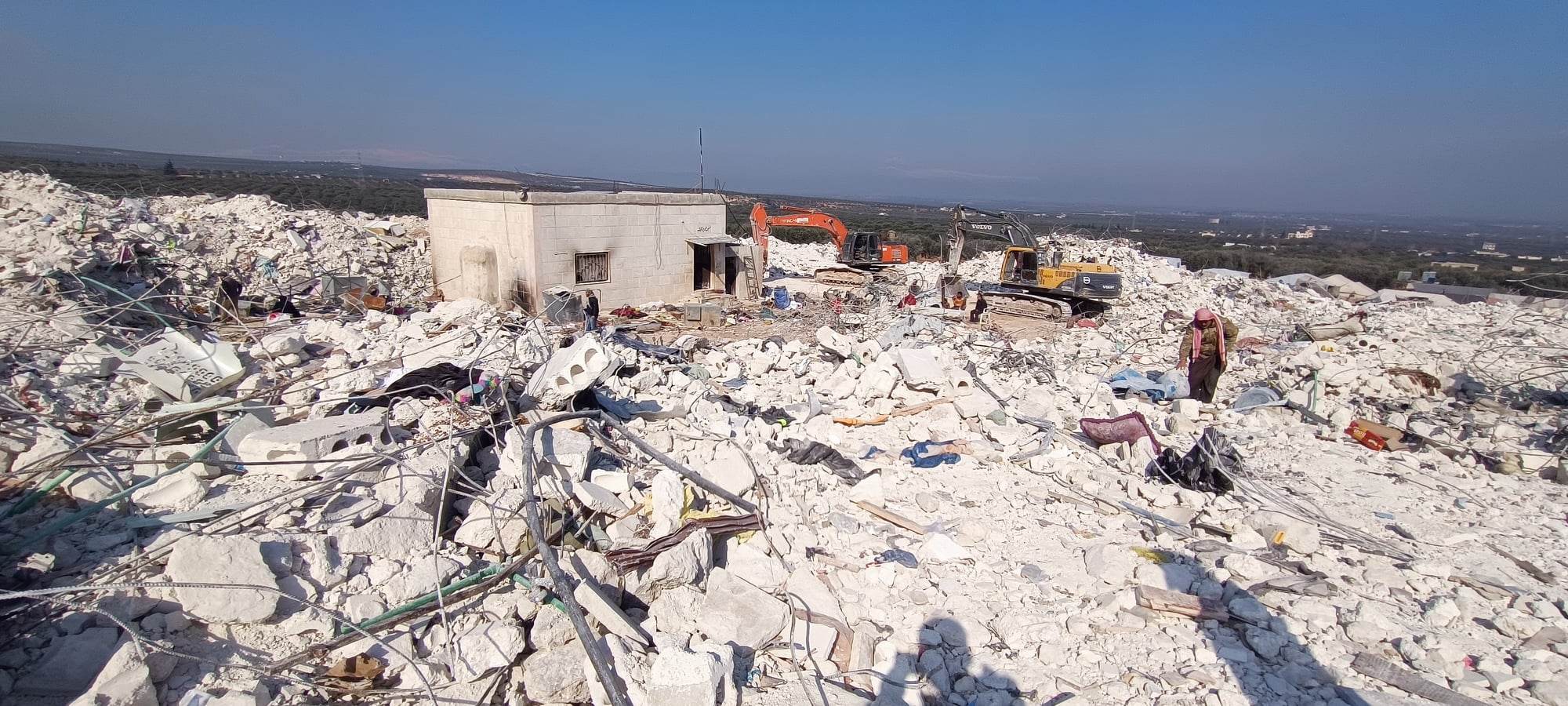
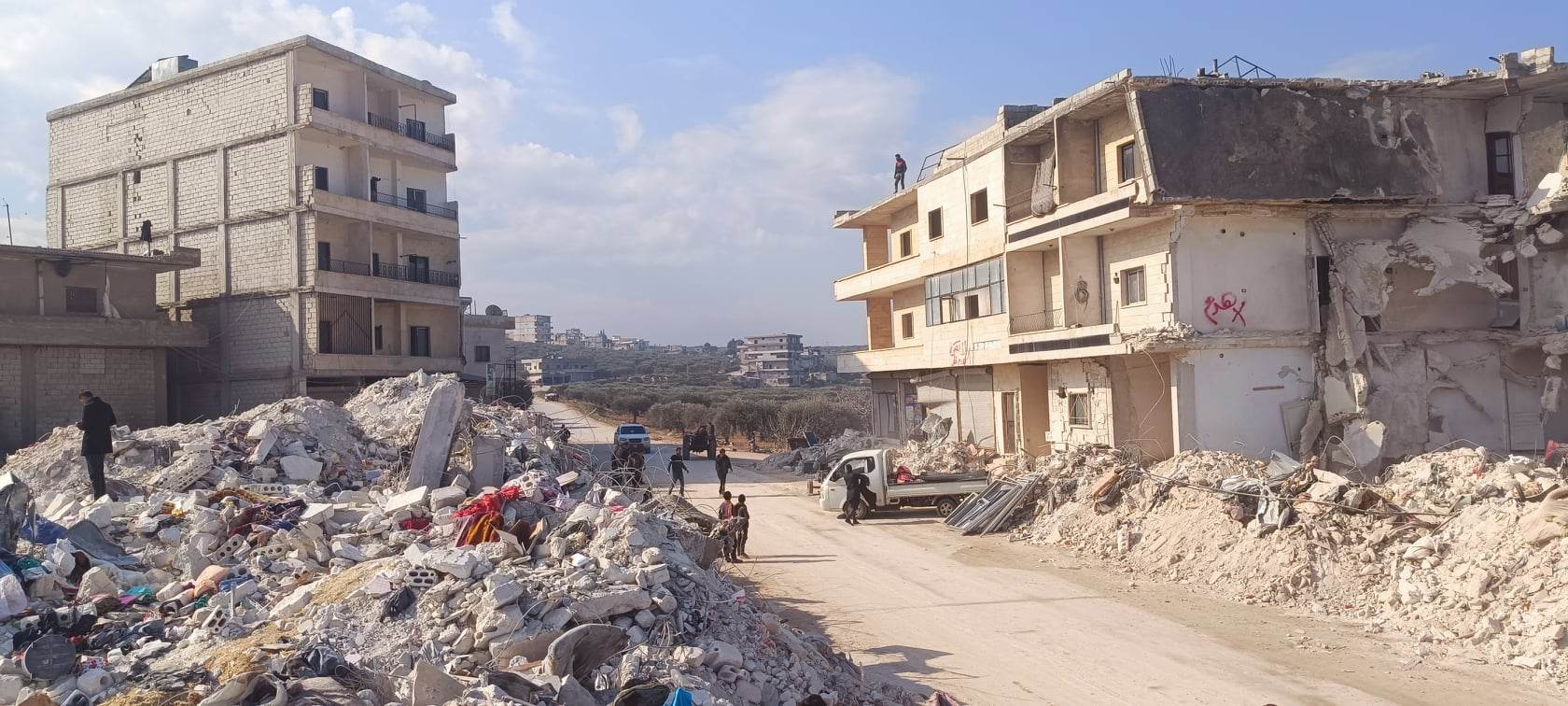
This aid is hampered by restrictions imposed by the Syrian government, which also prohibits access to the area to some international organizations. Aid must also be approved by the Turkish government, as it only flows into the rebel-held pocket via the Bab al-Hawa crossing on the Turkish border.
The delivery of aid to the enclave depends on a UN Security Council vote every six months. In 2020, Russia vetoed and forced the closure of all crossings except Bab al-Hawa, arguing that cross-border aid delivery mechanisms violated the sovereignty of their ally, the Syrian Government.
However, the roads leading to this crossing are now severely damaged after the earthquake.
Mark Lowcock, former head of the U.N. humanitarian affairs, told the Washington Post that he was not optimistic that the Syrian government would facilitate access for international organizations, considering its track record of “not wanting people to be in places they do not control.”
Northwest Syria has long suffered from regular bombings, with the latest attacks having taken place in January.
The Washington Post article says the issue of aid for Syria is “politicised”.
“For sure you don’t have the international support
you have] with teams deployed in Turkey. That means most people are dying. It’s not a complicated equation to solve,” the paper quoted Fabrizio Carboni, the regional director for the Near and Middle East at the International Committee of the Red Cross.
On the other hand, the Syrian government calls for the lifting of the economic sanctions of the United States and the European Union, stating that this is necessary in order to provide aid to the affected citizens.
The sanctions were introduced to put pressure on the regime to end the ongoing civil conflict.
According to CNN, the Syrian government's foreign minister, Faisal Mekdad, called on Europe to send aid, saying sanctions should not be used "as an excuse". He argued that sending aid from Europe does not have to go through a bureaucratic process and that, according to international law, humanitarian aid is not subject to sanctions.
When asked if the regime would allow aid to be sent to rebel-held territories, the Syrian Government replied that it would be the only one to distribute international aid in the country so that it does not reach “terrorist armed groups.”
From one disaster to another
Muhammad was in a refugee settlement when the earthquake struck.
He explained that the reason he is there and not with his parents in a government-controlled area is because he would otherwise be "forced to join the army of the regime", which he disagrees with.
“I was forcibly displaced from my village because of the ongoing war. My family and I, consisting of my wife and two children, fled to the border areas with Turkey. We were out in the open for about two months, and I had some savings. I built a room without a roof, and the area was gradually starting to populate with residents fleeing the bombing”, he said.
Muhammad tried to find a job but there were no opportunities. For two years now, he without steady financial income. He explained that he would work occasionally as a freelancer, thanks to his computer skills and knowledge of the English language.
When the disaster struck, he immediately joined search and rescue efforts as a volunteer.
“Search and rescue campaigns were organized by the civilians who survived the disaster with minimal resources available to them, with a lack of experience in search and rescue operations and the lack of the necessary equipment,” he said, adding that locals were forced to search for their loved ones “with their bare hands.”
Muhammad told N1 he lost his home in the earthquake which killed some 40 people from his village, including seven members of his wife’s family.
“The local administration is unable to respond to the disaster, and there is no infrastructure capable of accommodating and covering the affected areas. There is no department capable of assisting and meeting the needs of those affected,” he said.
video width="640" height="368" mp4="https://n1info.ba/wp-content/uploads/2023/02/14/1676401162-329809604_6102849163080373_2605876528204095083_n.mp4"]
/video]
Muhammad explained that the areas affected by the earthquake had been subjected to heavy bombardment throughout the past decade.
“There is basically no capability of serving the people,” he stressed.
However, there is one group that helps - the White Helmets, officially the "Syrian Civil Defence". At least they have some experience with similar situations.
The White Helmets is a volunteer organisation that was formed in light of the civil war in 2014 and operates in areas controlled by the opposition. Most of their activities consist of medical evacuations, search and rescue activities after bombings, evacuation of civilians from dangerous areas and provision of basic services.
“We would like to extend our deepest apologies and regrets to all those who were unable to reach their families and loved ones alive all over Syria. Pain squeezes our hearts just thinking about that. We were fighting against impotence and against time to reach them alive. The lack of effective equipment was a major reason for this. But we swear to you that we have worked and done our best”, the organisation said on Friday.
Now Muhamad travels every day to the most affected areas on his motorbike, and sometimes by car with a friend when the temperatures are low. He says that the cold, the quality of the roads, and the lack of fuel make things difficult. He adds that even the little fuel they have is of poor quality.
"The roads are damaged and unfit for driving because they were destroyed as a result of the war and the lack of public services that could maintain them," he said.
In addition to the human lives that were lost and those that are in immediate danger, the earthquake also destroyed the only source of income for many people living in this area.
Muhammad sent us footage of a collapsed dam in the area of Al-Taloul, a village near the town of Salqin. The flood destroyed the homes and agricultural lands the people here relied on.
video width="640" height="368" mp4="https://n1info.ba/wp-content/uploads/2023/02/14/1676401061-329819560_5972139212833508_2426735303917812328_n.mp4"]
/video]
Muhammad said that border crossings are opened for some very special cases. However, those who have the power to decide on this did not consider this earthquake to be one of those "special" cases.
“There was a very clear failure by the United Security and Western and Arab countries,” he said.
“The Syrian people were let down even under the worst conditions and disasters, and people were not taken into consideration here,” he added.
He has a question for the international community:
“What is the world, the United Nations and others waiting for before they intervene and help? Are they waiting for an even bigger disaster to happen?”
Kakvo je tvoje mišljenje o ovome?
Učestvuj u diskusiji ili pročitaj komentare





 Srbija
Srbija
 Hrvatska
Hrvatska
 Slovenija
Slovenija




